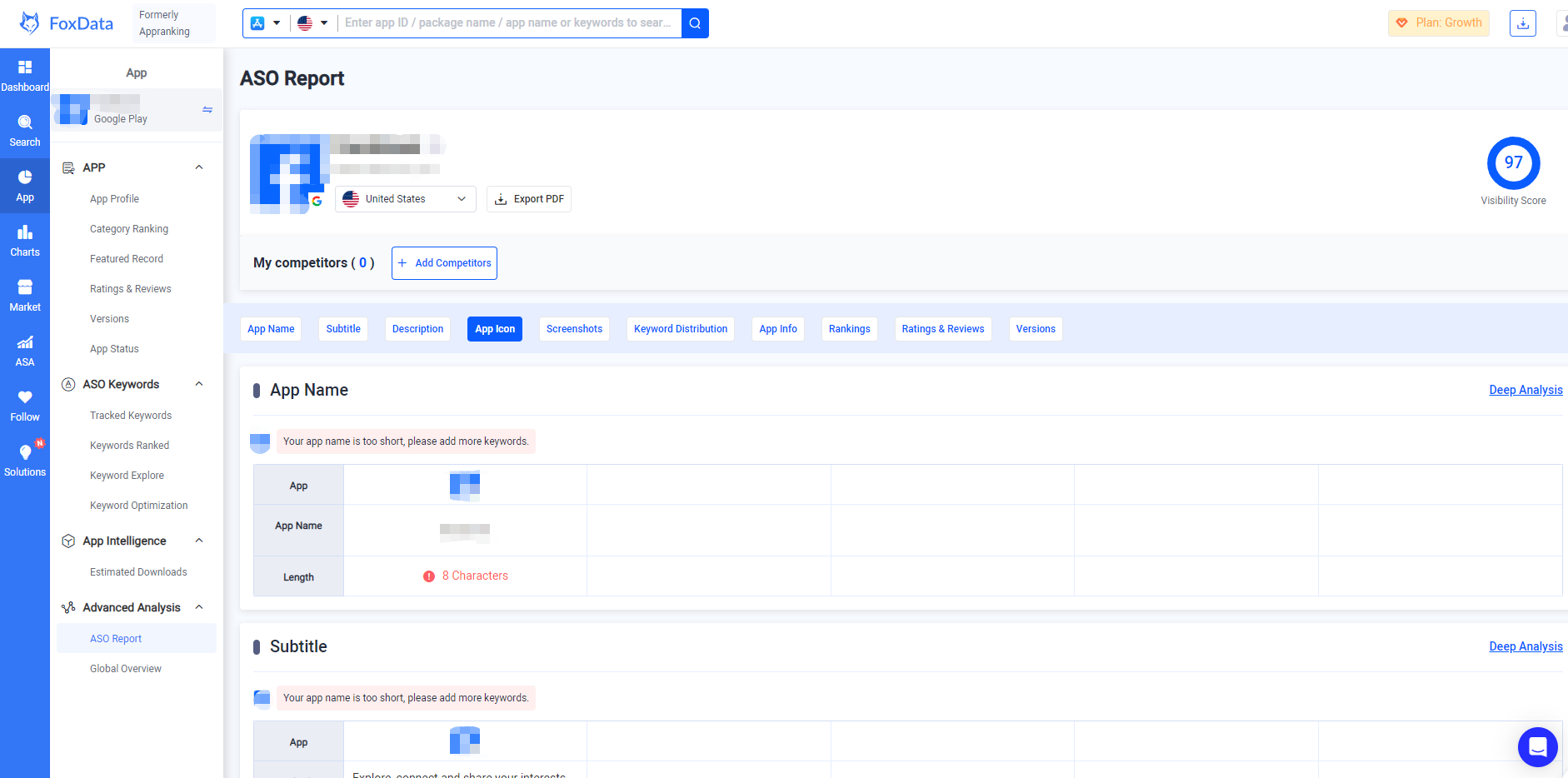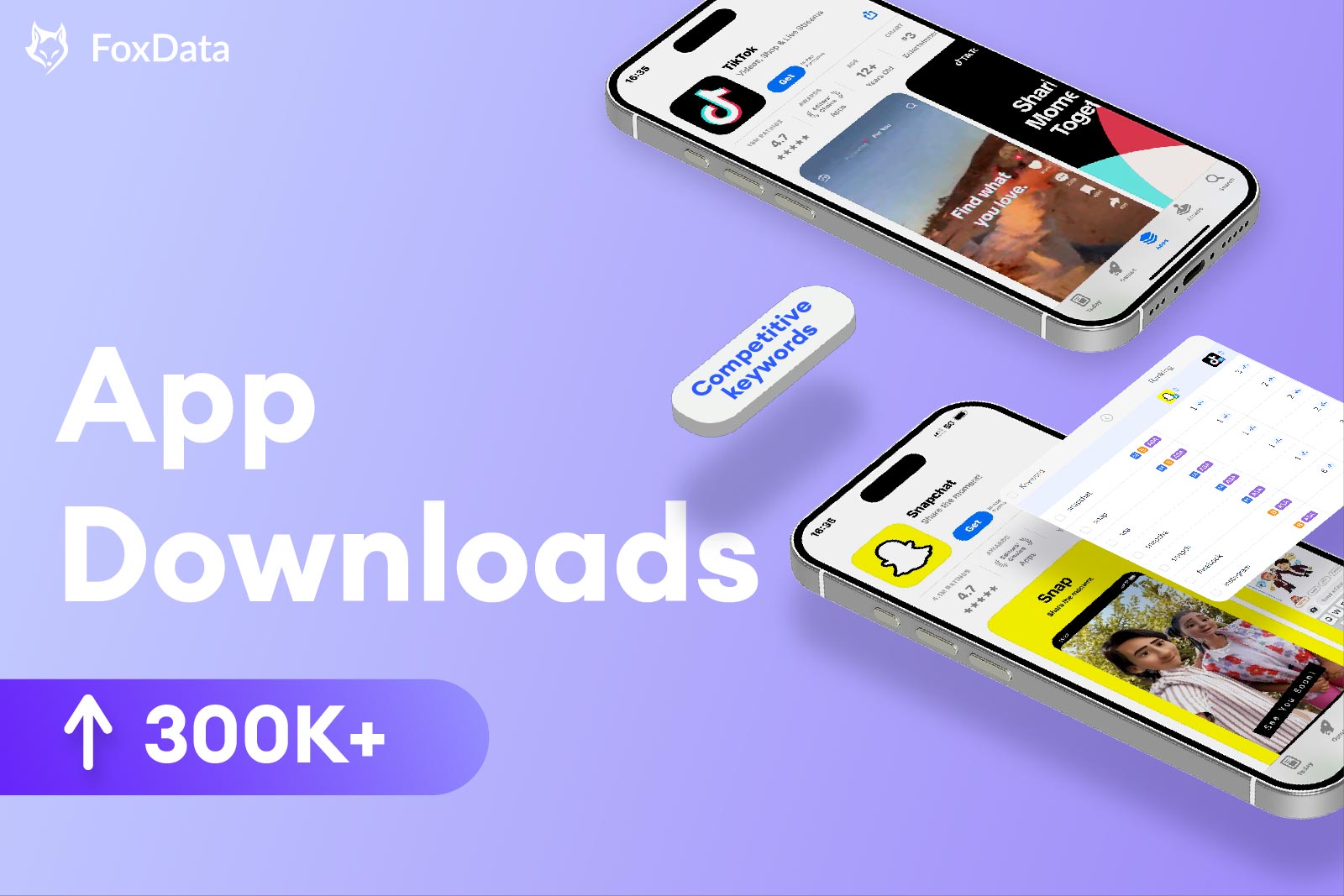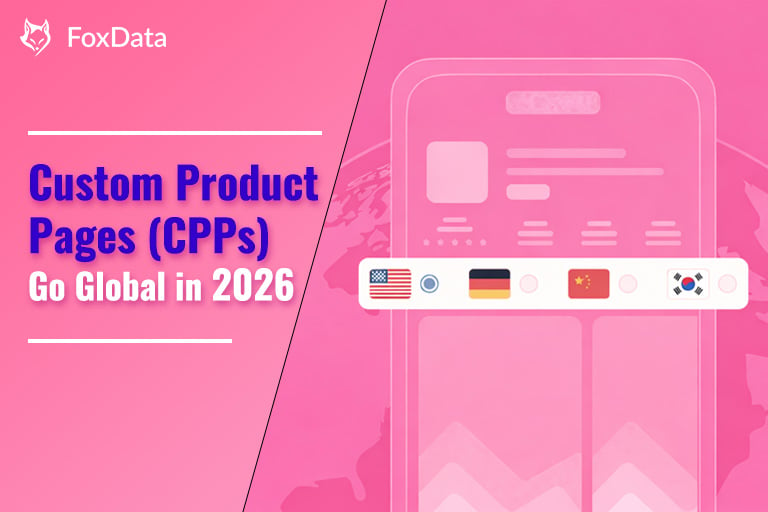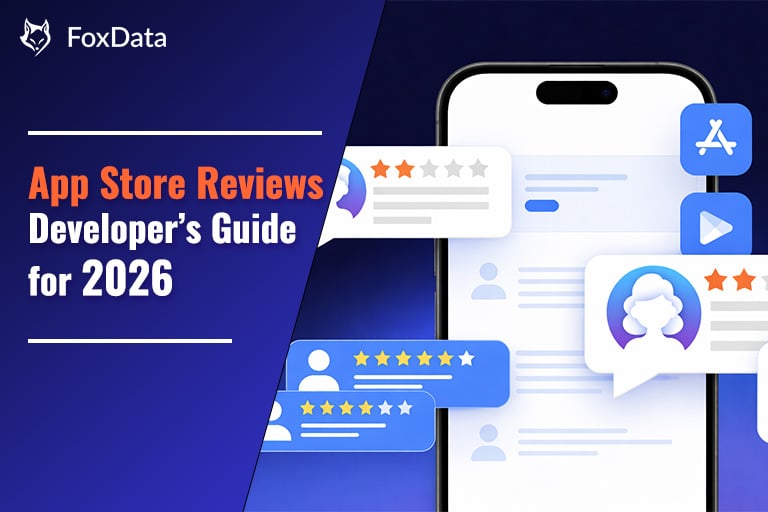Factors Affecting App Rankings: App Store vs. Google Play
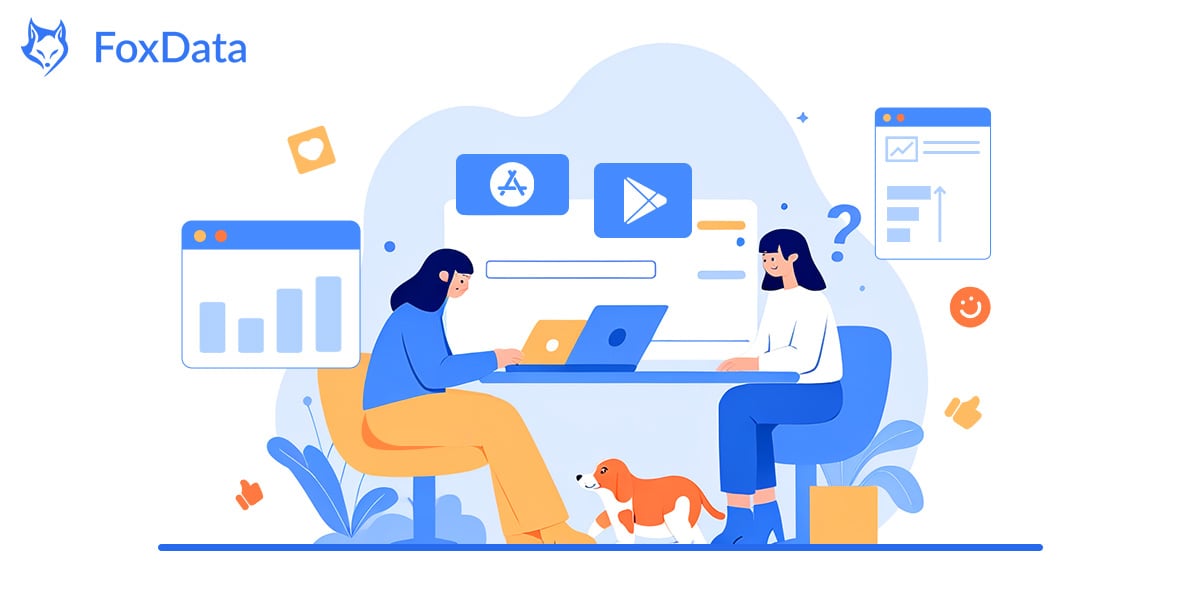
In the fiercely competitive landscape of app market, creating a fantastic app is just the first step. The real challenge lies in ensuring that your app stands out amidst the sea of digital offerings. This is where App Store Optimization (ASO) comes into play. ASO is the process of enhancing your app's visibility on platforms like the Apple App Store and Google Play, with the goal of attracting organic traffic and driving downloads.
Central to ASO are the "ranking factors," the criteria that app store algorithms use to evaluate and rank apps. These factors determine your app's position when users search for specific keywords or browse through app categories. A higher rank translates into greater visibility and increased downloads, underscoring the importance of understanding these ranking factors. Let's delve into the universal ASO ranking factors that are applicable to both the Apple App Store and Google Play, as well as examine specific ranking factors for each platform.
ASO Ranking Factors: A Universal Approach
-
App Title: The title of your app is its first impression on potential users. It should be catchy, succinct, and incorporate relevant keywords.
-
Keywords: Effective keyword optimization is crucial. Integrate keywords into your app's metadata, such as the title, subtitle (for the App Store), and app description. On Google Play, keywords are extracted from the title and description.
-
App Description: Craft a compelling app description that integrates keywords and effectively communicates the value of your app. The initial lines of your description are particularly vital for engaging users.
-
App Icon: The icon of your app is its face; it should be visually appealing and memorable to stand out.
-
App Screenshots and Preview Videos: High-quality visuals can dramatically influence conversion rates, providing users with a glimpse of what your app offers before they download it.
-
App Ratings and Reviews: Positive reviews and high ratings enhance your app's credibility and visibility, potentially attracting more users.
-
App Updates: Regular updates signal to users that your app is actively maintained and evolving, which can boost user confidence and engagement.
-
App Size: The size of your app matters; smaller apps are more accessible, especially for users with limited storage space.
iOS App Ranking Factors
-
App Name: The App Name is a powerful ranking factor. You have a limit of 30 characters, so use this space strategically by including pertinent keywords.
-
App Subtitle: Introduced in iOS 11, the App Subtitle field provides an additional 30 characters. This space is indexed by the App Store search algorithm, making it a valuable area for keyword incorporation.
-
iOS Keyword Field: Apple offers a unique Keyword field where you can specify the keywords you want your app to rank for. This field, hidden from public view, allows 100 characters. Use this space to include keywords not already in the App Name and App Subtitle.
Tip: When adding keywords in App Store Connect, separate them with commas, avoid spaces, articles, and prepositions, and refrain from repeating keywords across any fields. - In-App Purchases (IAP): The names of your IAPs, including subscription plans, are indexed by Apple. Each IAP has its own display name, promotional image, and description. Make sure these are optimized as they can appear in the app store search results.
- Apple’s Spotlight Search: This feature allows users to search for apps installed on their device. Activating Spotlight Search can enhance engagement and consequently improve your app's ranking.
ASO Report Diagnosis in App Store from FoxData
Google Play Ranking Factors for Android Apps
-
App Title: Google Play allows for 50 characters in your App Title. Like the App Store, keywords in the title have the most significant impact on ranking.
-
App Description: Google Play uses your app description to identify keywords. Keywords situated in the initial lines are more relevant than those in the rest of the description.
-
Short Description: The Short Description, visible above the fold on the Google Play Store, is crucial for keyword rankings and attracting users. Use these 80 characters to succinctly convey what your app is about.
-
Long Description: The Long description allows up to 4000 characters. Repeating your chosen keywords 3-5 times can help Google recognize the relevance of these search terms to your app.
-
Google Tags: You can select up to 5 tags for your app from a predefined list. While this doesn't directly impact your Google Play ranking, it assists the algorithm in categorizing your app and ranking it for the appropriate keywords.
- SEO Backlinks: There's speculation that Google Play incorporates SEO strategies in their search ranking. Having more places where people can discover your app is always beneficial. Good web SEO can lead to more app downloads and a higher ranking in Google Play.
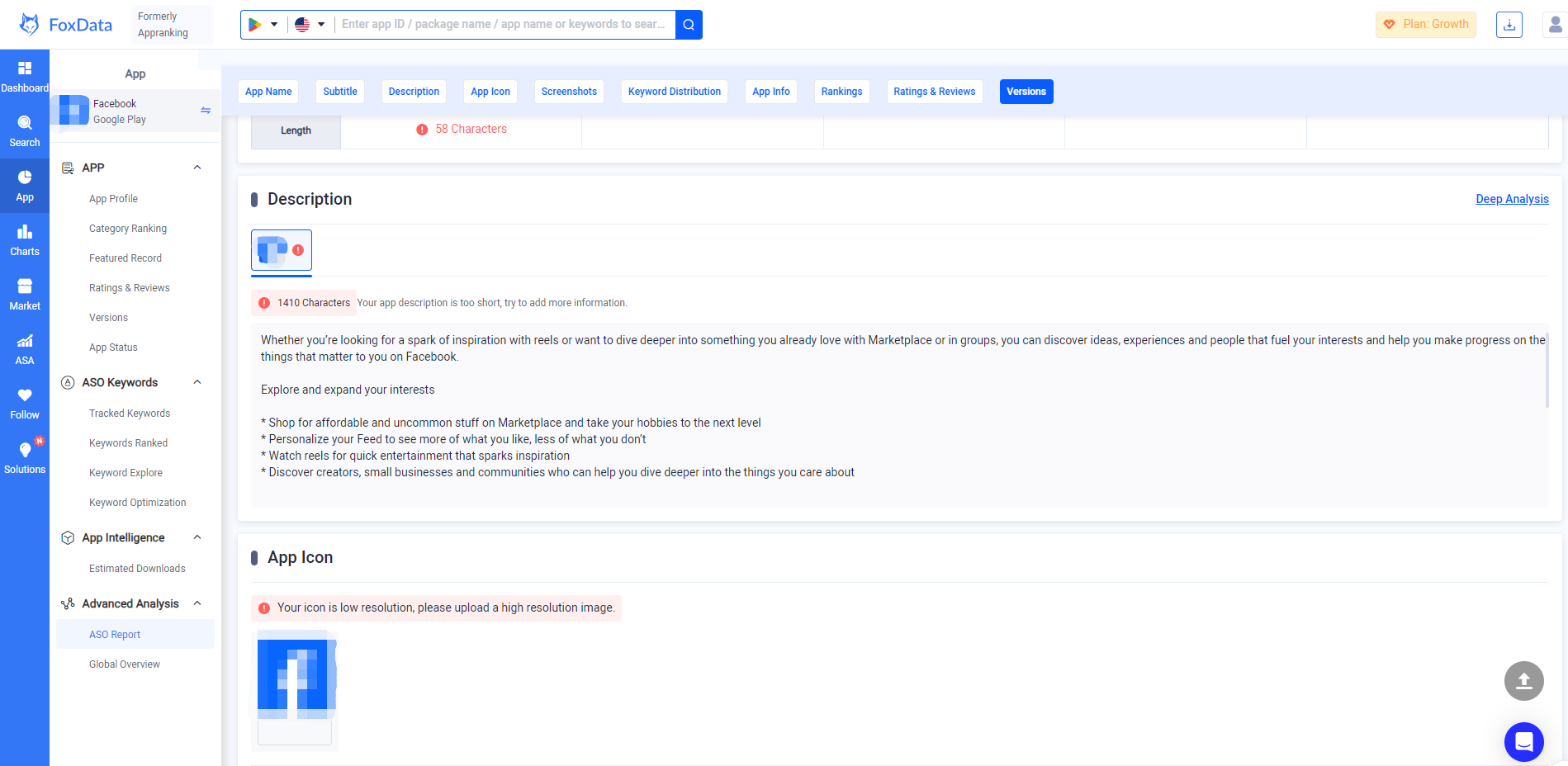
ASO Report Diagnosis in Google Play from FoxData
Mastering ASO is crucial for any app's success today. While the basics stay the same, understanding the differences in how the App Store and Google Play rank apps can make a big difference. ASO isn't a one-time thing. It's an ongoing process that needs to adapt as your app grows and app stores change. Keep optimizing and adjusting to help your app rise in the rankings and reach the right audience.
Welcome to read more blog about ASO Strategies.
To streamline your ASO research and analysis, we recommend FoxData, an intelligent ASO data analysis platform. FoxData offers comprehensive insights into keyword rankings, search volume, competitor analysis, and more. With its user-friendly interface and powerful features, it will empower you to make data-driven decisions and maximize the impact of your ASO efforts.
With these insights and the right tools at your disposal, you are now ready to embark on your ASO journey and unlock the true potential of your mobile app. Start optimizing your app's visibility today and pave your way to success in the competitive app market!
Or do you want to find a professional team to increase your app's user acquisition? FoxData's sub-brand, FoxAdvert, tailors App Store Optimization services to fit your unique goals!


